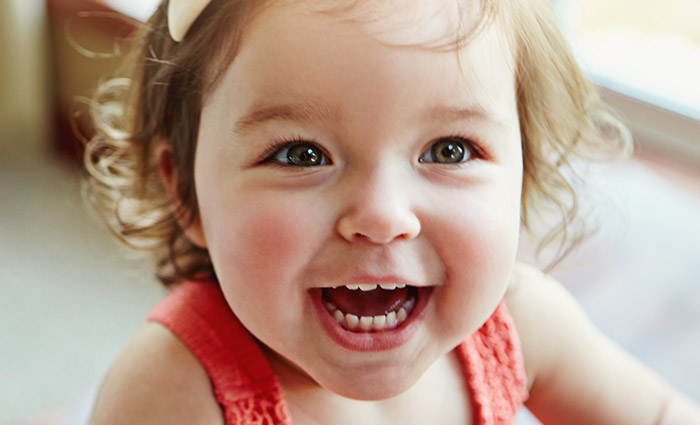Most babies don’t start getting teeth until they are about six months old. It is important to begin oral care for infants as soon as possible. Many dentists recommend an initial visit before the child's first birthday. They will make sure their teeth and gums are being cared for and cleaned properly. It is a good idea to get in the habit of cleaning your baby’s gums soon after birth. Many children grow to enjoy brushing their teeth as a daily routine.
During your babies first year, there are a few conditions to be aware of:
Teething
Between 3 and 9 months, your infant's baby teeth will begin to emerge into the mouth. Teething may cause your child to become irritable or fussy. This may result in restlessness, drooling or loss of appetite. However, it has not been shown to cause any other childhood symptoms.
Baby Bottle Tooth Decay
Baby bottle tooth decay is one of the most important issues in infant tooth care. This condition is caused by frequent exposure, over time, to sugary liquids, which can seriously damage a baby’s teeth and overall oral health.
Pacifiers
Sucking is a normal part of development that is comforting to children well into their first years of life. Sucking often will bring comfort even after your child no longer needs nourishment from a bottle or breast. During a child's first few years, sucking habits probably won't damage his or her mouth. However, long term sucking can cause some serious problems. This is especially true if the habit continues after baby teeth start to fall out.


